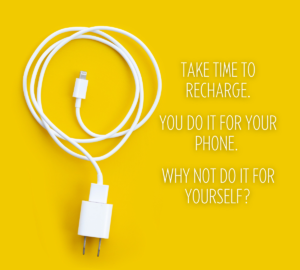Have you ever wondered why some individuals have such a positive experience with their coach, while others are disappointed?
As with everything in life ‘due diligence’ pays off; success is all about the research you do prior to committing to a coaching relationship. Before engaging the services of any coach, make sure you know the answers to these five key questions:
1. Take time to interview potential coaches.
Just as when you are hiring an employee, I recommend you have a 20-30 minute phone conversation with one or more prospective coaches; invite answers to some basic questions to help determine if this is the right coach for you:
- Does your potential coach have formal training? Do they belong to a professional association? For instance, membership in the International Coach Federation means a commitment to a Code of Ethics that may be important to you.
- Where do you want your coaching sessions to be delivered? Depending on the coach, options might include telephone, in person, your office, their office or combination of each. I personally highly recommend you avoid coffee shops or restaurants for coaching sessions unless they offer privacy/confidentiality and an uninterrupted, focused conversation.
- What time of day works best for you? How frequently do you want to meet? Most coaches will recommend one hour every two or three weeks and prefer to schedule those sessions in advance to ensure consistency.
- What results do you want to achieve through your coaching conversations? How will you measure your success?
- Are you prepared to do the necessary work? Inevitably there are strategies, resources and/or conversations that will demand your time in between coaching conversations. Behaviour change always takes commitment, time and energy.
The International Coach Federation is a great resource for finding a coach and information about coaching.
2. Know what you are looking for.
This was my downfall when I hired my first coach. She was recommended to me by another coach and so I skipped this step; lesson learned the hard way. The coach I hired was actually a business mentor – she really just wanted to tell me what to do; I wanted a ‘thinking partner’ to challenge my assumptions and to learn to become an even stronger critical thinker. I already had a business mentor who I enjoyed working with. Be clear about what you are looking for and be sure you know what they are offering.
It’s not unusual to hear ‘I just want someone to tell me what to do, to move my career forward’. If this sounds like you, you might be looking for a mentor – not a coach. In very simplistic terms, a coach asks you questions to help you find your own path, whereas a mentor shares his/her experience, strategies and technical experience to support your success. The role of a credentialed coach is:
- To create a safe, confidential place for you to explore your current reality; to understand how you got there and start working towards your future goals.
- To challenge and inspire your thinking about ‘what might be’; to consider options and consequences without judgement.
- To choose the best path for you, decide what action you are going to take and hold you accountable to your commitments.
Based on my own experience with my coach, the most difficult conversations I have had, the ones that hit all of my ‘triggers’ were the ones that moved me forward the furthest. Choose wisely.
3. Are you willing to do the work required?
Coaching is a partnership: Your coach is committed to supporting your success, to inspire and challenge, to create a safe place for you to be vulnerable and hold you accountable for your actions. You need to be willing to do the necessary reflection, allow yourself to look at some of the ‘stories’ you have been telling yourself, to take a look at the hard facts and to follow through on any actions you commit to taking.
If you’re unwilling or unable to do your part, it won’t matter which coach you choose, success will be elusive.
- Come to the coaching sessions prepared; take time to reflect on the previous conversation and your commitments at that time. What has worked? What hasn’t worked? What’s next?
- Be committed to the appointments you make and honour the time allocated for each one. We all know life sometimes gets in the way, so if you need to cancel, do so with as much notice as you can possibly provide.
- If it’s not working for you, let your coach know. There aren’t many ‘egos’ in the coaching world – we’re here to support your success as that’s what fuels us. You might even invite a recommendation to another coach.
4. Ensure you feel a connection to your coach.
This is perhaps the most important question. A coach will sometimes ask you questions that will make you feel uncomfortable, that will challenge your current thinking and force you to take a look at your role in any given situation.
You must trust your coach so that you can be open and transparent throughout the process. It is important to believe your coach is there without judgement, willing to ask the tough questions and always there to support your success.
- Invite a complimentary coaching session with the one or two coaches who you felt might be right for you during the interview process.
- After that interview take time to reflect on how you are feeling. Did you feel heard? Did you feel your language and thinking were aligned? Could you share your doubts, fears, and challenges with this individual? If not, keep looking.
5. Prepare for each coaching session.
I’d like to share what works from my perspective when I am working with my own coach and when I am coaching. It’s important to remember this is truly your growth journey.
- Set measurable goals for yourself at the beginning; I personally believe what gets measured gets done. I now use CoachAccountable software so that you can actually measure your progress online…a visual reminder.
- Set aside some time in between your coaching sessions and just prior to each session to reflect on your progress. It’s sometimes difficult to keep our own priorities as a focus in the midst of competing demands. Consider in advance how you can set yourself up for success.
I invite you to consider these five easy steps when choosing your own coach. We all choose coaches for different reasons with different expectations. Know what you want and go after it. The right coach will be your cheerleader, a thinking partner, a challenger, accountability and celebration partner. In the words of one of my clients:
”I have been working with Linda as my coach for the past few months. Each time we meet she leads me to a new “ah ha” moment and has forced me to rethink the way I approach some key aspects of my career. I am more than confident that I will be in a much better position to “take care of business” and “visualize the future”.”
Coaching can be a great investment in your future; choose wisely.






